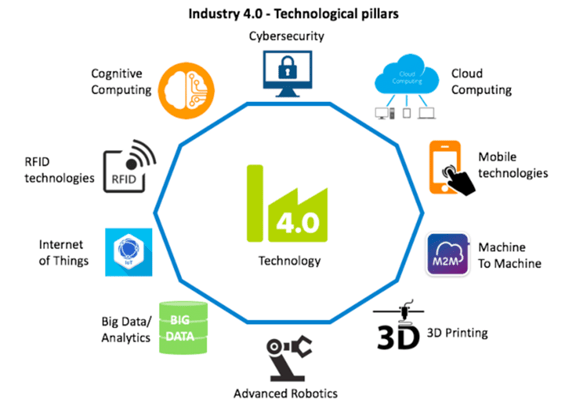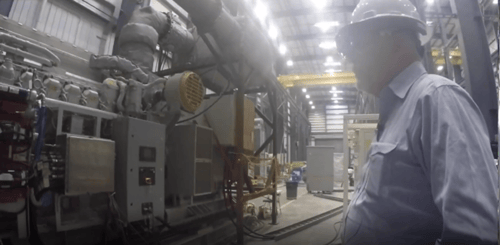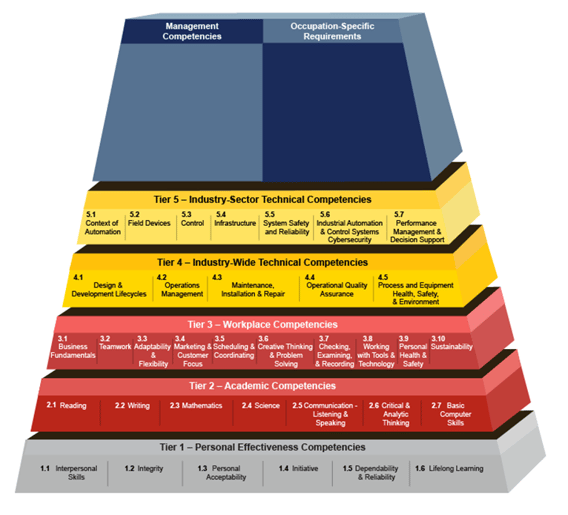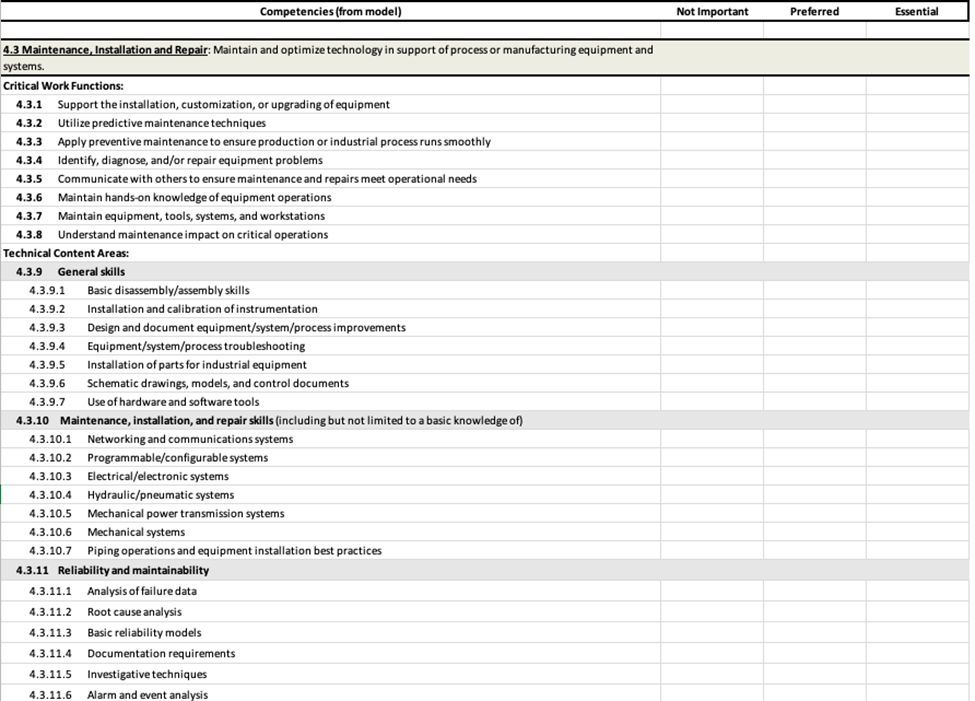The automation profession has always been in a state of constant evolution. In the early days, automation professionals would need to understand a world of analog computers, pneumatic control, and relay logic. Today’s automation professional needs to have a broad range of skills and knowledge—from more conventional aspects such as PLC programming and instrumentation to networking protocols, databases, and virtualization. If this were not enough, Industry 4.0 assumes the use of newer technologies and concepts such as Augmented Reality (AR), the Industrial Internet of Things (IIoT), and digital twin. How do we identify what the future automation professional needs to know?
Industry 4.0
Industry 4.0 is a term to define the combination of traditional manufacturing with smart technology, and is also known as smart manufacturing.

Industry 4.0 Technologies
Various organizations are attempting to understand how the future manufacturing workforce will need to look in order to embrace all the benefits of Industry 4.0. The next generation workforce needs to be trained now if organizations are to remain competitive in this new era.
An article by Deloitte, The Future of Work in Manufacturing [1], “Examine[s] what future manufacturing jobs will be like in the digital era.” To help explain their prediction, the created ten personas—each describing a future job in manufacturing. Four of the personas are conventional manufacturing jobs (e.g. "QA manager") with the word “smart” added. The remainder are a mixture of new job titles for existing roles that use new technology in that role (e.g. "digital twin" engineer) and very narrowly defined jobs that may exist or may be part of another role (e.g. "drone data coordinator").
MxD (Manufacturing x Digital) is a non-profit organization where major manufacturers, in partnership with the US Department of Defense, are identifying the tools and expertise they need to enhance their capabilities. Their report The Digital Workforce, Succession In Manufacturing [2], identifies 165 roles, although each role is narrowly defined and the skills and knowledge overlap with several others. For example—there are eight roles with IT/OT in the title (application developer, systems analyst, systems architect, systems technician, etc.). In reality there are probably two roles here (technician, engineer), and a variety of company specific names or activity specific roles (e.g. during a project).
A More Likely Reality
The approaches by Deloitte and MxD can certainly stimulate good discussion, but manufacturing organizations are unlikely to change so dramatically. The real benefit of Industry 4.0 technologies is that organizations can achieve their core mission more efficiently and deliver better quality output. As a result, the skills and knowledge requirements for existing roles will need to change and personnel in those roles will need additional training.
A simple example is the QA engineer. Today’s QA engineer’s toolkit includes 2D drawings, manufacturer’s data books, and a tape measure. The role has developed over the years and has moved further away from hard copy documents to electronic—including 3D models. Future QA engineers will further develop and be able to utilize:
• A digital twin that combines an accurate 3D model of equipment with the manufacturer’s data fully integrated
• Smart glass technology to allow the overlay of a 3D model on the actual equipment, simplifying the process of tie-in point validation and dimensional control

This is the Deloitte smart QA manager role—although it would be more helpful to focus on the new skills and knowledge the QA manager needs, rather than dwell on the name of the role.
This is a minor issue. The more significant concern is that Deloitte and MxD both foresee manufacturing organizations creating roles such as digital twin engineer and virtual reality/augmented reality software engineer. Digital twin and augmented reality systems are no more core business for manufacturing organizations than are manufacturing execution and enterprise resource planning systems.
Of course, manufacturing organizations will employ personnel who can support the business with technology, most likely in their IT departments. But even then, these roles cannot be so specialized that they only support one technology. As technology inevitably evolves the role needs to be one that can keep up (or ahead) and continue to evolve. Therefore, the organization should update the skills and knowledge requirements for their relevant roles to include the new technologies that need supporting.
Defining Skills and Knowledge for the Future Workforce
ISA, representing the automation profession, has been working with the US Department of Labor since 2008 on the development and ongoing maintenance of an automation competency model (ACM). The model identifies the knowledge and skills needed in the automation profession.

The automation competency model (ACM), produced by ISA for the US Department of Labor, is reviewed every three years to ensure the skills and knowledge remain current. The next review is scheduled for 2022. During the previous review, the team of SMEs incorporated many of the aspects of Industry 4.0 (e.g. digital twin, big data/analytics) and the next update fill in the gaps.
The ACM defines the totality of skills and knowledge needed in the automation profession. To identify a specific profile for a role, users are able to use the needs analysis matrix. This can be used to screen applicants for roles, as well as assess gaps in skills and knowledge in the existing workforce.

Using the ACM skills and knowledge descriptions, it is possible to define a training curriculum. ISA’s existing training portfolio covers a significant portion of the ACM skills and knowledge, and work is underway to review the gaps. This will also include identifying the gaps in new skills and knowledge areas (such as Industry 4.0) and identifying a strategy for closing those gaps.
This may involve the development of a new training (or certification) program or may be better suited to partnering with other like-minded organizations who are better suited to a particular set of skills and knowledge. Either way, ISA will be able to offer all the relevant training and certification needed for the future automation professional and help manufacturing organizations achieve their ambitions.




